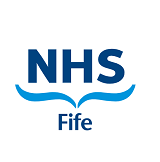Myths about autism
There are many incorrect beliefs about autism. These myths can include information about:
- the causes of autism
- the best ways to overcome the challenges faced by autistic people
- cures for autism
Causes
Autism is:
- not caused by bad parenting
- not caused by vaccines, like the MMR vaccine
- not caused by any ingredients in vaccines
- not caused by trauma or distress at a young age
- not caused by diet
- not an infection you can spread to other people
Harmful and dangerous treatments
There’s no cure for autism. Many autistic people see autism as an important part of their identity and would not want to be cured.
While some people claim to be able to ‘treat’ or ‘cure’ autism, there is currently no evidence that such treatments are effective. Some have proven to be dangerous. Even ones that aren’t dangerous are unethical, and none of them are helpful.
Harmful and dangerous treatments for autism can include:
- forcing an autistic person to act more like a non-autistic person, for example insisting they make eye contact
- forcing an autistic person to act less autistic
- hyperbaric oxygen therapy
- chelation therapy
- chloride dioxide (CD), also called Mineral Miracle Solution (MMS)
- neurofeedback treatment
- facilitated communication
- auditory integration training
Unsupported treatments
There are some treatments that don’t have enough evidence to suggest they’re helpful, but also don’t have evidence to suggest they’re harmful as long as they’re done safely.
These treatments include special diets, such as gluten-free or casein-free diets. Any special diet should only be done under the supervision of a dietician or nutritionist.
If you hear about a treatment that you want to try, always talk to your GP or the healthcare professional who usually supports you or your child first.
How to spot fake treatments
There are many ways to identify a fake treatment. People, organisations, or websites that promote fake treatments usually:
- claim to ‘cure’ autism or help people ‘recover’ from autism
- claim the treatment works quickly or instantly
- claim the treatment can be done at home by anyone, and you don’t need training or qualifications
- claim you can’t trust doctors to be honest with you, or say “doctors don’t want you to know about this”
- ask autistic people, or parents of children with autism, to rely on their knowledge of their body or their child’s body instead of considering scientific evidence
- have no scientific evidence to prove they work, like peer-reviewed studies or information from the NHS
- use personal stories as evidence that they work, which makes it hard to tell if the stories are true
- advertise themselves with words like ‘miracle’, ‘faith’, and ‘trust’, or use religious phrases
- charge a lot of money, and often ask for money to be paid on a regular basis
- promote treatments for autism that aren’t available on the NHS, or claim to be ‘experimental’
Healthcare professionals have put together information on what treatments are safe and unsafe. If you’re unsure about any treatment, ask your GP or the healthcare professional who supports you or your child.
How to report fake treatments
If someone tries to sell you a fake treatment, you can report them to Trading Standards.
If you see an advert for a fake treatment in the media, on a website or on social media, you can contact the Advertising Standards Authority.
If you see someone promoting a fake or harmful treatment on social media or a web forum, you can make a report to the administrators of that online community.
Learn more about autism
There are a number of websites that can provide more information and advice for autistic people and their families:
You can find information about local services and support using Scotland’s Service Directory.

Source: NHS Fife - Opens in new browser window
Last updated:
24 April 2024